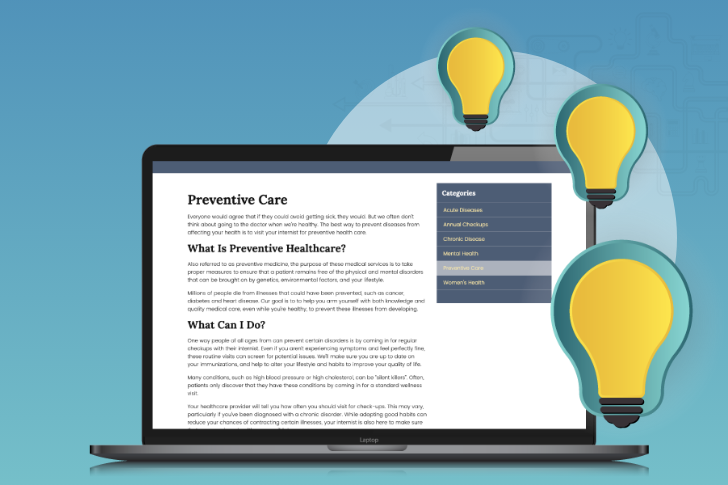As a website company, you may expect us to say that a cutting-edge website is a solution to every practice marketing problem. That all you need to do is get a good website, and new patents will come flooding into your practice. You may expect us to reach into the Field of Dreams playbook and saying, “If you build it, they will come.”
But they won’t.
New patents don’t come from just websites. Instead, new patents come from many places, all of which may eventually lead them to your website. They take a long journey before setting foot in your practice, and your website is one of the very last steps along the way.
A Website Is Your Foundation
Now, this doesn’t mean that getting a website was not a valuable use of your time and money.
You absolutely need a website to succeed these days.
A website is the foundation of your online presence and first point of contact that prospective patients have with your practice. But your website is only one of many places on the web that prospective patients find your practice.
Before your website can help your patients and your practice, they have to be able to find it.
Don’t Be Invisible In Search
If you’re not showing up in search results, you might as well be invisible. Only 75% of users ever look past the first page of search results on Google.
You also need to make sure that your website is optimized to be indexed by search engines. This is a process called search engine optimization. And if you can combine search engine optimization with pay-per-click advertising (Google Ads), you can significantly decrease the time that it takes for your practice to gain traction in search results.
But it doesn’t stop at search engines. New patients may find you in many other places on the web, too.
Maps, Mobile Apps, and Online Directories
In fact, they may search for you in over 60 maps, mobile applications, and healthcare or business directories across the web.
You don’t even have to create these listings yourself in order to be listed on them. Many of them are created by “bots” and other algorithms that search the web for businesses and add them to their directories.
Without having direct control over how your practice is listed online, you may be indirectly negatively affecting your patients’ experience before they even walk through the doors of your practice (or send them to another practice, entirely).
People Trust Online Reputation
The above issues deal with how patients find you. But what about dealing with what they think about you? 85% of consumers trust online reviews as much as they trust a word-of-mouth recommendation. And that’s even if they got a word of mouth referral.
Your online reputation is vital to the success of your practice. So if you want your practice to succeed, give prospective patients positive reviews to help them trust you.
57% of consumers won’t use a business that has fewer than 4 stars (up from 48% in 2017). And consumers require an average 40 reviews before believing a business’s star rating is accurate (up from 34 in 2017) (BrightLocal 2018).
Not to mention that the average revenue increase for each star in online reviews is 5 to 9% (Harvard Business School, 2016).
You want to get to work right away on building a large collection of positive online reviews.
Online reviews are one part of your online reputation, but another is your social media presence.
Small Businesses Use Social Media
More than 50 million small businesses use Facebook to connect with their customers. And for healthcare practices, social media networks like Facebook represent a vast referral network of patients for your practice.
Establishing a social media presence for your practice gives you an opportunity to reach new patients.
76% of adults use Facebook on a daily basis, so it’s an excellent idea to have an active social media presence for your practice.
This always brings up the question of what do you share on your social media page?
Use Content To Keep People Engaged
Besides staying in touch with your patient base, you can also use social media to share valuable content.
This turns your online presence into a valuable online resource patients can share day or night and use to stay engaged with your practice between appointments.
76% of people use their Facebook feed to find interesting content. (HubSpot, 2016) and patient education combined with following best practices for content creation is a great way to fill your social media page with helpful content.
While a solid website follows best practice is indispensable for your practice will always be the foundation of your online presence, you should expand into these other areas as much as possible as you develop.
If you have any questions about how to take the next steps in building an online presence that helps your practice grow, contact Officite.



